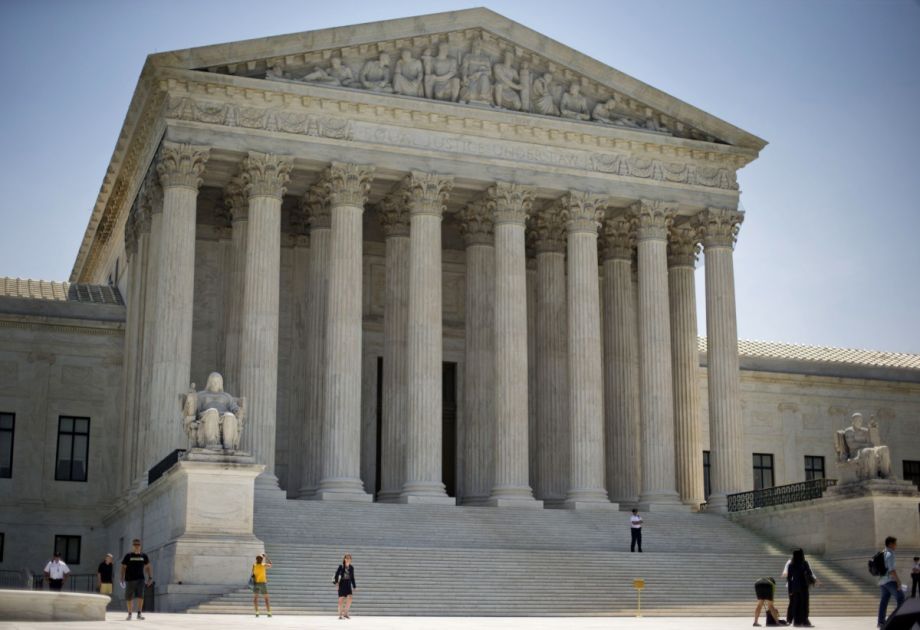Supreme Court’s Fair Housing Ruling Could Boost True Neighborhood Revitalization

(AP Photo/Pablo Martinez Monsivais)
In what’s being widely hailed as a gigantic victory for civil rights law, the Supreme Court ruled yesterday to uphold the use of disparate impact claims under the Fair Housing Act. The much-debated theory of disparate impact centers around how certain practices, in this case related to housing, could be deemed discriminatory — based not on intent, but on the resulting poor impact on a minority group.
“To be candid, many people in the civil rights advocacy community were very pessimistic about the outcome of this case, I among them,” Ted Shaw, director of the Center for Civil Rights at the UNC School of Law at Chapel Hill and former director-counselor of the NAACP Legal Defense and Educational Fund, said yesterday. “I did not think there was much of a chance of prevailing in this case, given the direction of this court in civil rights cases. So this is a good day. … I can’t tell you how gratified I am.”
Days before the decision, Frank Alexander, co-founder of the Center for Community Progress and a professor at Emory Law, said that the loss of disparate impact would have gutted the Fair Housing Act.
“If the Supreme Court elects to reject the possibility of discriminatory impact, it’s going to basically be undoing the last 45 years of Fair Housing Act enforcement,” explained Alexander. “That result would make it incredibly difficult for the Fair Housing Act to be enforced except when the defendant actually says, ‘I refuse to rent to you because of your race … .’” This too would’ve applied to discrimination disputes in real estate transactions. Alexander said that the loss of disparate impact could have welcomed a variety of dangerous practices, among them shadow redlining on the part of mortgage lenders and a clustering of special needs housing through inadvisable tax credit allocations.
Shaw emphasizes that this prong to the law is crucial for striking down more subtle forms of injustice: “People don’t express themselves with respect to discriminatory intent the way they did some time ago, but there’s still a lot of bias out here that is subterranean.”
The Fair Housing Act, passed in 1968, was an attempt to reset the pattern of urban black enclaves and white suburbs that had spread. Any evaluation of blight in American cities requires an understanding of the origins of these patterns and the dark history of racism in urban policy. From 1934 to 1968, the Federal Housing Authority made a practice of refusing mortgages to blacks. The authority also habitually granted home repair loans that were undersized, which discouraged some families from fully rehabilitating aging urban houses. This spurred mass disinvestment in African-American neighborhoods and the inner city.
When Congress stalled on Fair Housing Act’s passage in the ’60s, Martin Luther King’s assassination changed that. The Civil Rights Act of 1968 (the FHA is Title VIII) became law after his death.
Still, even with the passage of the Fair Housing Act, a collection of factors worsened conditions in urban minority neighborhoods. While redlining is perhaps the most discussed, June Manning Thomas, an urban planning professor at the University of Michigan, clarified at the Reclaiming Vacant Properties conference last month that it was really a “grab bag of housing policies.” This includes the planning of public housing, the use of Low-Income Housing Tax Credits and discriminatory mortgage lending practices on the part of government-sponsored entities like Fannie Mae, just to list a few of Manning Thomas’ examples.
The Fair Housing Act itself was troubled by weak enforcement. Nikole Hannah-Jones’ award-winning investigation for ProPublica reveals that the Nixon administration wasn’t nearly as fond of the law as LBJ’s had been, so despite then-HUD Secretary George Romney’s efforts (yep, Mitt’s dad), the bill’s powers fell dormant. Even though later administrations would view the act more favorably, debates over its reach would loom.
This is another layer to why yesterday’s ruling is so significant: Disparate impact arguments, armed with research, can take aim at policies that might not appear discriminatory, in an era when increasingly sophisticated data helps to illustrate disparities that have been more difficult to capture in the past.
The Supreme Court, by ruling with the plaintiffs, the Inclusive Communities Project, agreed that the Texas Department of Housing’s awarding of tax credits (solely in minority neighborhoods from 1995 to 2009) had been segregative.
One might ask what’s the harm in creating more affordable housing in minority neighborhoods. But housing experts have been digging into this question in recent years.
An article published this month in Housing Policy Debate delves into the effects of affordable housing projects.
Unfortunately, while ameliorating the effects of unfair lending is an attractive policy goal, research shows that affordable housing generally fails to revitalize stricken neighborhoods. Indeed, development often has a negative effect, as these neighborhoods are frequently at high risk of racial or economic transition and are among the most likely to be adversely affected by the addition of subsidized housing … [Housing policy researcher George] Galster also concluded that “affordable housing seems least likely to generate negative impacts when it is inserted into high-value, low-poverty, stable neighborhoods.”
One of the report’s authors, Myron Orfield, said yesterday’s ruling is “going to prevent the kind of saturated, segregated housing that’s common in the United States.” He added, “it’s a victory for true revitalization.”
This post is part of a 10-part series underwritten by the Center for Community Progress.Read all posts in the series here.

Cassie Owens is a regular contributor to Next City. Her writing has also appeared at CNN.com, Philadelphia City Paper and other publications.
Follow @cassieowens

No comments:
Post a Comment
Please leave a comment-- or suggestions, particularly of topics and places you'd like to see covered